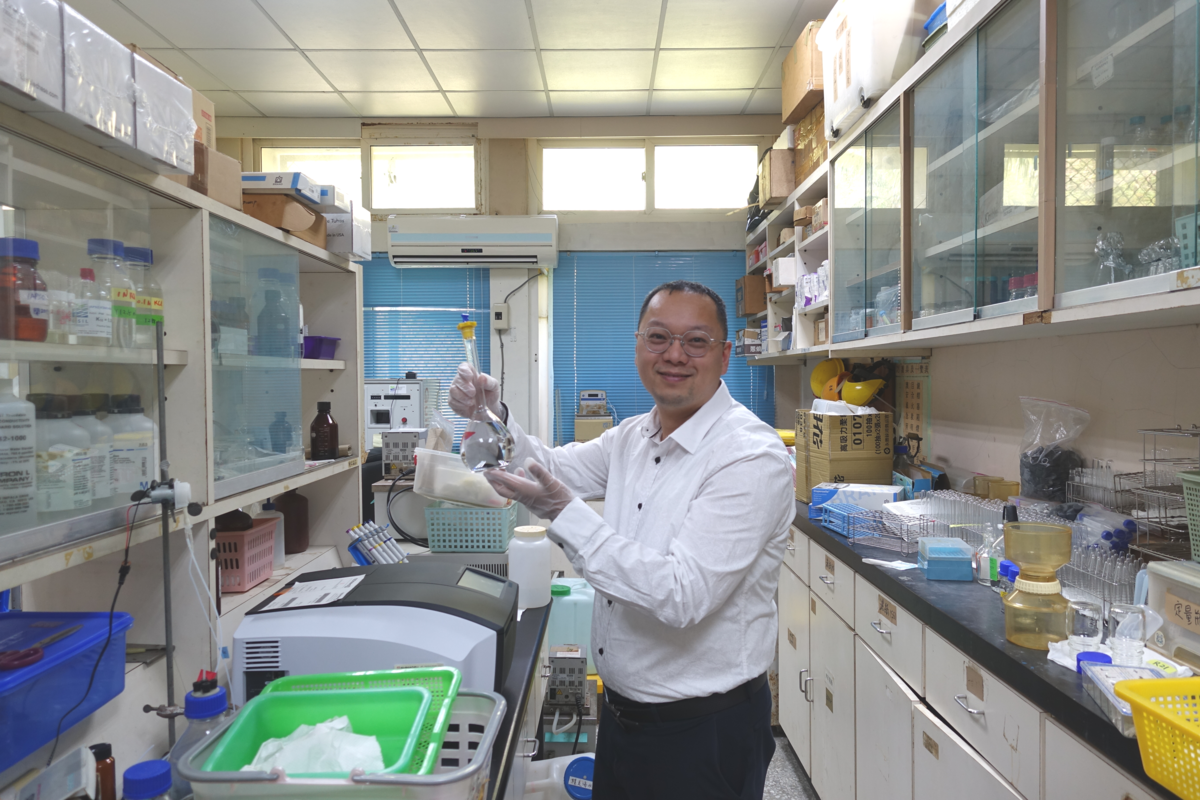Ocean acidification may adversely impact marine ecosystems and exacerbate global warming


Ocean acidification will not only affect the growth of many marine organisms, altering entire ecosystems but also exacerbate global warming, warns Assistant Professor Hon-Kit Lui of the Department of Oceanography at National Sun Yat-sen University. The average pH of global oceans has been dropping dramatically since the 1850s and is estimated to fall from the present-day above 8.1 to below 7.8 by the end of the century, if the CO2 emissions are left unchecked, according to Climate Change 2013: The Physical Science Basis by the Intergovernmental Panel on Climate Change of the United Nations.
“Oceans play an important part in the absorption of carbon dioxide”, however, because CO2 reacts with surface water, producing carbonic acid, excessive emissions of carbon dioxide caused by anthropogenic activity have been causing the global oceans to acidify since the pre-industrial era. “Oceans cover 71% of the Earth’s surface and deeply influence the ecology and climate. Thus, any changes in the marine environment will affect us too”. Ocean acidification is not only interconnected with global warming but may also further exacerbates it. Ocean acidification will cause phytoplankton to release less cloud-forming sulfur compounds back into the atmosphere, thus there will be fewer clouds to block the sunlight and cool the Earth’s surface. “Fewer clouds can exacerbate global warming”, explained Assistant Professor Lui.
Ocean acidification will also affect entire ecosystems, influencing the population of several marine organisms. The jellyfish bloom has been increasing in the past years, as jellyfish seem can stay well in warmer waters with a lower pH. Therefore, it possibly could be one of the dominant species in many places in the future. Other species, however, will decrease both in numbers and size. Shelled marine organisms, which shells are made of calcium carbonate, will grow smaller and smaller, and their shells will be thinner and thinner. “Some types of corals and foraminifera will grow slower in a more acidic environment; the shells of foraminifera will not grow well and may even dissolve if the seawater reaches a certain degree of acidification”, said Assistant Professor Lui.
Scientists have been working on measures to alleviate ocean acidification and foster the growth of photosynthetic organisms. Waters in different regions of the world, particularly their surface waters, often lack various types of nutrients much needed by marine organisms. Scientists developed technologies to pump the nutritious deep-sea water to the surface for the nutrients to foster the growth of the organisms on the surface, where light can permeate and photosynthesis can occur. Another efficient technology is iron fertilization, which made the phytoplankton flourish in the iron-deficient waters of the Southern Ocean, absorbing more CO2 through photosynthesis.
Assistant Professor Hon-Kit Lui is a chemical oceanographer specializing in ocean acidification, biogeochemistry, carbonate chemistry, marine pollution, and global change. He is a member of NSYSU Aerosol Science Research Center and has participated in several international projects related to marine research, including Surface Ocean - Lower Atmosphere Study (SOLAS). Parts of his work now are the extensions of the goals of the Joint Global Ocean Flux Study (JGOFS) and the World Ocean Circulation Experiment (WOCE). Worth mentioning, NSYSU Vice President for Academic Affairs Professor Chon-Lin Lee is the Taiwan representative of SOLAS. Assistant Professor Lui was conferred several awards for his outstanding contribution to marine research, including the 5th Ocean Research Award from the Oceanographic Society of the Republic of China in 2019.
Assistant Professor Lui, together with the research team guided by Professor Li-Lian Liu and Professor Chen-Tung Arthur Chen of the Department of Oceanography, NSYSU, have recently published their research paper on “The significance of PM1 accumulation by biota in aquatic ecosystems and the potential risk to living organisms”. This is the first research proving that black carbon, produced in the burning of fossil fuels, can permeate to marine organisms and their offspring by maternal transfer.
“Oceans play an important part in the absorption of carbon dioxide”, however, because CO2 reacts with surface water, producing carbonic acid, excessive emissions of carbon dioxide caused by anthropogenic activity have been causing the global oceans to acidify since the pre-industrial era. “Oceans cover 71% of the Earth’s surface and deeply influence the ecology and climate. Thus, any changes in the marine environment will affect us too”. Ocean acidification is not only interconnected with global warming but may also further exacerbates it. Ocean acidification will cause phytoplankton to release less cloud-forming sulfur compounds back into the atmosphere, thus there will be fewer clouds to block the sunlight and cool the Earth’s surface. “Fewer clouds can exacerbate global warming”, explained Assistant Professor Lui.
Ocean acidification will also affect entire ecosystems, influencing the population of several marine organisms. The jellyfish bloom has been increasing in the past years, as jellyfish seem can stay well in warmer waters with a lower pH. Therefore, it possibly could be one of the dominant species in many places in the future. Other species, however, will decrease both in numbers and size. Shelled marine organisms, which shells are made of calcium carbonate, will grow smaller and smaller, and their shells will be thinner and thinner. “Some types of corals and foraminifera will grow slower in a more acidic environment; the shells of foraminifera will not grow well and may even dissolve if the seawater reaches a certain degree of acidification”, said Assistant Professor Lui.
Scientists have been working on measures to alleviate ocean acidification and foster the growth of photosynthetic organisms. Waters in different regions of the world, particularly their surface waters, often lack various types of nutrients much needed by marine organisms. Scientists developed technologies to pump the nutritious deep-sea water to the surface for the nutrients to foster the growth of the organisms on the surface, where light can permeate and photosynthesis can occur. Another efficient technology is iron fertilization, which made the phytoplankton flourish in the iron-deficient waters of the Southern Ocean, absorbing more CO2 through photosynthesis.
Assistant Professor Hon-Kit Lui is a chemical oceanographer specializing in ocean acidification, biogeochemistry, carbonate chemistry, marine pollution, and global change. He is a member of NSYSU Aerosol Science Research Center and has participated in several international projects related to marine research, including Surface Ocean - Lower Atmosphere Study (SOLAS). Parts of his work now are the extensions of the goals of the Joint Global Ocean Flux Study (JGOFS) and the World Ocean Circulation Experiment (WOCE). Worth mentioning, NSYSU Vice President for Academic Affairs Professor Chon-Lin Lee is the Taiwan representative of SOLAS. Assistant Professor Lui was conferred several awards for his outstanding contribution to marine research, including the 5th Ocean Research Award from the Oceanographic Society of the Republic of China in 2019.
Assistant Professor Lui, together with the research team guided by Professor Li-Lian Liu and Professor Chen-Tung Arthur Chen of the Department of Oceanography, NSYSU, have recently published their research paper on “The significance of PM1 accumulation by biota in aquatic ecosystems and the potential risk to living organisms”. This is the first research proving that black carbon, produced in the burning of fossil fuels, can permeate to marine organisms and their offspring by maternal transfer.
Click Num:
Share
